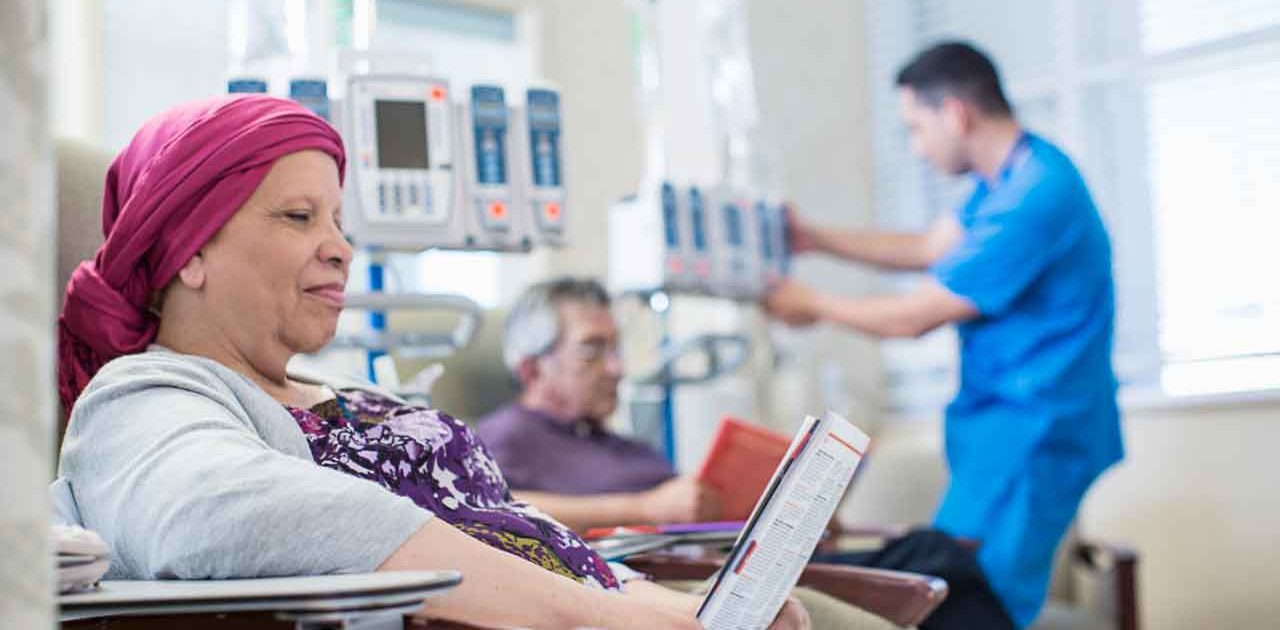Creating a Community of Caregivers When You’re an Outpatient

When illness strikes, it really does take a village to manage your health. Here's how to create a community of caregivers when you’re an outpatient.
When Julia Connor was diagnosed with leukemia, her doctor told her that she could be treated on an outpatient basis. That meant she’d have to drive to and from the hospital every day and visit a few different doctors, while managing work and day-to-day activities.
“I felt like I was on overload,” she said. “My doctor told me that, ‘if I had to get cancer, this was the good kind to get because it’s treatable.’”
YOU MIGHT ALSO LIKE: Making Caregiving Decisions and Answering Questions
The medication, however, made her weak and tired. Driving into the city from her suburban town was not a good option because she had trouble focusing. Quitting her job was not feasible because she needed the income and the insurance to cover her medical bills.
Fortunately for Connor, her adult children stepped in. They organized a family meeting and called on cousins, aunts, uncles, and close friends. The next step was a private Facebook group. “When people first hear that someone’s ill, they’re eager to help,” Kelly McElligott, a clinical social worker at Loyola University Health System in Maywood, Ill, said.
That’s what happened in Connor’s case. Friends and family members who joined the Facebook group left questions asking what they could do. Connor’s children responded with a calendar asking people to sign up to give rides to and from the hospital, visit Connor at the hospital and at home, walk her dog, go grocery shopping, and even help with meal preparation.
“The outpouring was amazing,” one of Connor’s daughters said. “Everyone wanted to visit that first week. Having a calendar in place where people could sign up meant we could spread out the visits and chores. This way, my mom had visitors helping throughout the month.”
McElligott says that everyone immediately dives in when they learn of a loved one’s health problem, “and then they get back into their routines and aren’t around as often. That’s why having a schedule or calendar is perfect.”
Connor had to take a leave of absence from work. “The meds leave me so woozy that I can’t always function like I used to,” she said. “So, I had some vacation time coming and am now working part time from home.”
She’s fortunate because she will have a job to go back to once she’s fully recovered. “Being surrounded by family and friends helps so much,” she said. “It makes me feel better.”
McElligott said it’s important to have someone to confide in.
“It can be a friend, family member, or professional therapist,” she said. “It’s hard today with so many of us living apart from our families. Not everyone has a large support group. If you don’t, talk to your doctors. Some hospitals have support groups for people with cancer and other illnesses. It’s important to be around others. And there are many online support groups. You can start by asking your doctors if they can recommend any.”
Connor’s children also asked their Facebook community for experts in everything from patient advocacy to recommendations for mental health specialists. “We didn’t always know the right questions to ask my mom’s doctors,” one of Connor’s daughters said. “We actually met a few people in our community who had friends who went through similar treatments. They were able to fill us in on what to expect and how to help my mom. It really put all of us at ease.”
McElligott said: “The more you know, the less you’ll fear. That’s why someone who’s an outpatient needs to surround himself with a large circle of family and friends.”
It was also helpful that Connor accepted all of the help. “My mom’s a giver,” her daughter said. “Two neighbors came by to clean her house. Letting them do that was a big deal for her. Our neighbors are wonderful people, and they said they felt good doing it.”
Other friends stopped by with food. Connor’s refrigerator is filled with healthy foods. “Everyone asked what my mom could eat and couldn’t eat,” her daughter said. “It’s amazing to see so many people willing to pitch in.”
Other places where you can find help include places of worship, local schools, and community centers.
Resources
- Family Caregiver Alliance
- National Alliance for Caregiving
- Caregiver Action Network
- Well Spouse Association
- ARCH National Respite Network and Resource Center
Updated:
August 29, 2023
Reviewed By:
Janet O’Dell, RN